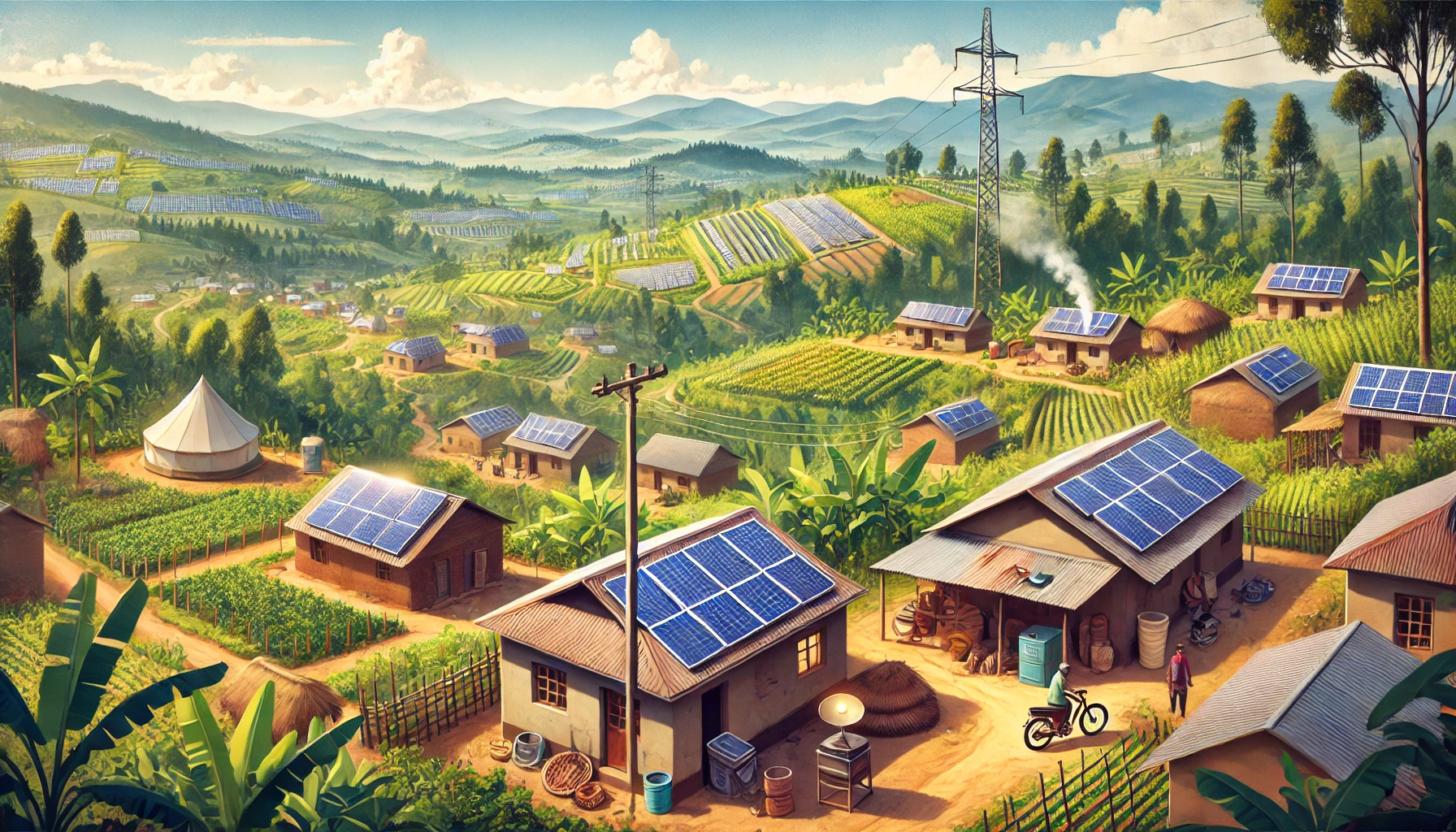Powering Rwanda: Expanding Energy Access Amid Rural and Refugee Disparities
The Rwanda Energy Survey highlights significant progress in expanding electricity access, with 63.9% of households now connected, though rural areas and refugee camps still face substantial gaps in both electricity and clean cooking services. Targeted policies are needed to address these disparities and advance toward universal energy access by 2030.

- Country:
- Rwanda
The Rwanda Energy Survey, conducted by the World Bank provides an in-depth analysis of the country’s progress toward achieving universal energy access, particularly focusing on household electricity and clean cooking services. This survey, a follow-up to the inaugural 2016 survey, employs the Multi-Tier Framework (MTF), which moves beyond the binary concept of having or not having energy access. Instead, it evaluates energy access across six tiers (Tier 0 to Tier 5) based on factors like electricity capacity, availability, reliability, and safety. By examining these attributes, the survey offers a more comprehensive understanding of energy access in Rwanda, highlighting the nuanced challenges and opportunities in the country's ongoing energy transition.
Rwanda's Rapid Expansion in Electricity Access
A key finding of the survey is the substantial improvement in electricity access across Rwanda. By mid-2022, 63.9% of households had access to at least one source of electricity, up from 28.6% in 2016. This rapid expansion of energy access is a testament to the significant strides made by the government and development partners. Notably, rural electrification has seen a marked improvement, with access rates increasing from 17.5% in 2016 to 57.9% in 2022. Despite these advancements, a pronounced gap between rural and urban access remains. While rural areas have made considerable progress, rural households still lag behind urban ones, where 91.6% of households have electricity access. The national grid is the predominant source of electricity, particularly in urban areas, including the capital, Kigali. However, in rural areas, a variety of off-grid solutions, including solar technologies, play an increasingly important role in expanding energy access.
Understanding the Multi-Tier Framework for Energy Access
The Multi-Tier Framework used in the survey provides a nuanced understanding of energy access. Rather than just looking at whether a household has electricity, the MTF evaluates the quality of the electricity supply based on six attributes: capacity, availability throughout the day and in the evening, reliability, voltage quality, formality of the connection, and safety. Households are then categorized into one of six tiers, with Tier 0 representing no access and Tier 5 representing full service. According to the survey, many households are classified in lower tiers, meaning that while they may have some access to electricity, the quality or reliability of that access is limited. For instance, households in Tier 1 may only have limited hours of electricity per day or may use low-capacity sources such as solar lanterns, which provide light but are not sufficient for running more energy-intensive appliances.
Challenges in Expanding Access to Clean Cooking Services
In addition to electricity access, the survey evaluates household access to clean cooking services, which is another critical component of energy access. Clean cooking is evaluated based on exposure to harmful pollutants, convenience, safety of the stove, and the availability of clean fuels. The MTF classifies households into tiers based on these attributes, with households in the higher tiers having access to clean or improved cooking solutions, such as liquefied petroleum gas (LPG) or improved biomass stoves. The survey finds that many Rwandan households still rely on traditional, polluting cooking methods that pose significant health and environmental risks. These households are often in the lower tiers, meaning their exposure to pollutants is high, and their stoves may not be safe or efficient. While there has been progress in promoting cleaner cooking solutions, the transition to modern energy cooking services is still in its early stages, particularly in rural areas where traditional biomass remains the dominant cooking fuel.
Gender and Energy Access: The Role of Women in the Transition
Gender plays a significant role in the energy access landscape, particularly in the context of clean cooking. Women are disproportionately affected by the lack of clean cooking solutions, as they are typically responsible for gathering fuel and cooking. The health risks associated with exposure to harmful emissions from traditional cooking methods disproportionately affect women and children. The survey's gender analysis highlights the need for targeted interventions to ensure that women are at the forefront of efforts to promote clean cooking solutions. It also underscores the importance of addressing the social and cultural barriers that may prevent women from adopting cleaner energy solutions.
Energy Access in Refugee Camps: A Critical Challenge
The survey also includes a detailed analysis of energy access in refugee camps in Rwanda. The country is home to a significant refugee population, and ensuring that refugees have access to energy services is critical for their well-being. The survey finds that refugee households have much lower access to electricity and clean cooking services compared to households in the host communities. While some progress has been made in providing solar energy solutions to refugee camps, the level of access is still insufficient to meet the needs of these vulnerable populations. Refugee households often rely on low-capacity solar lanterns or other off-grid solutions, which provide basic lighting but are not sufficient for other energy needs. Similarly, clean cooking access is limited in refugee camps, with many households still relying on firewood and other traditional fuels for cooking.
The Rwanda Energy Survey offers valuable insights into the country's progress toward achieving universal energy access. While there has been significant progress, particularly in expanding electricity access, challenges remain in ensuring that all households, including those in rural areas and refugee camps, have access to reliable, safe, and modern energy services. The data-driven insights from this survey will be critical for informing future energy policies and interventions aimed at closing the remaining access gaps and ensuring that Rwanda can meet its goal of universal energy access by 2030.
- FIRST PUBLISHED IN:
- Devdiscourse










